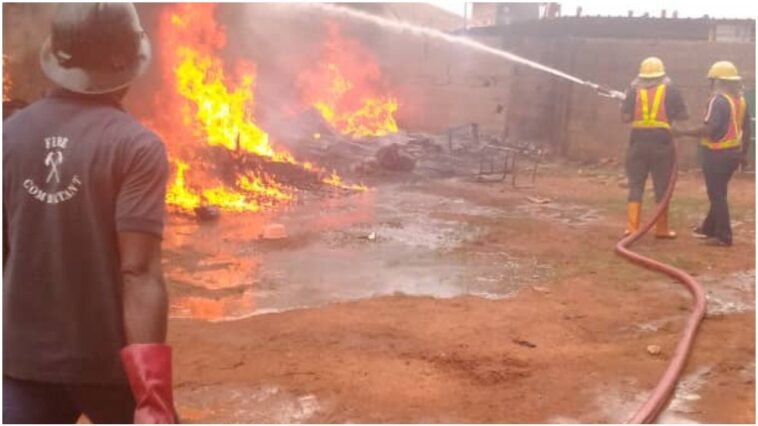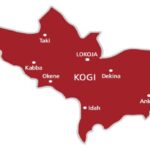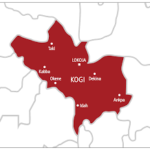My reflections on serial tanker explosions or tanker related suicidal incidents (note: not accidents!) on our roads in the past decades can pass for a booklet on “Mass Murder By Tanker Drivers”. I read with heavy heart another carnage last week according to which “..at least” 28 people “have been killed ….after a fuel tanker exploded following a collision with other vehicles at Lokoja”. Many primary school pupils and students of Kogi State Polytechnic were reportedly among the dead. The killer driver reportedly lost control of the tanker “after the brakes failed”, local police said. Familiar reasons for mass murders, which have not been legally challenged. Lokoja police spokesman, Willy Aya, said several victims were burnt beyond recognition, mostly pedestrians, “including the students who were crossing the road to go to college”.
“Others who died included a group, who were killed inside their cars”. Kogi State Polytechnic authorities had to declare September 23, 24 and 25 as lecture-free days to, among other reasons, do “a careful and thorough identity check of members of staff and students affected by the inferno!” I recall that in the wake of the 2008 tanker explosion at Eleme Junction in Port Harcourt many reportedly were killed, many and not a few, were burnt. What we have at hand certainly is not “tanker blasts” but failing Nigerian state. Twelve years after PH mass murder, many Nigerians have since been “roasted” on account of what the media misleadingly present as “accidental explosions” when indeed it is lack of governance in Nigeria. When “accidents” get frequent, they are no more accidents that take place after some precautions. On the contrary, the carnages are expected incidents criminally caused by lack of governance (in this case) of the production and distribution of petroleum products and secondly, lack of effective road governance. Undoubtedly, the FRSC, under the activist, Corp Marshal of the Federal Road Safety Corps, Boboye Oyeyemi, has been doing a good job to promote safety awareness on our roads. But the underlining factors causing road carnage are beyond FRSC. Remember the tanker tragedy that occurred in Upper Iweka, Onitsha, Anambra State in which as many as 70 reportedly died. But given that many uncounted poor lot also sustained multiple degrees of burns at that singular carnage, may be it is better we lament human tragedy rather than reducing it to mere correct statistics. Two brothers reportedly lost six children in Lokoja unprovoked carnage! Can any of us imagine the agony of instant obliteration of families on the road? No tragedy is good enough on account of the correctness of the figure of its casualties. At Iyana Ipaja and at Idimu bus stop of Egbeda, Lagos there were once similar explosions in which many lives and several residential apartments were affected, confirming that serial incidents of madness are no “accidents” but avoidable incidents if federal and state governments are on duty to save lives. Our cities almost “compete” (as it were!), with the notorious Iraqi cities in explosions (albeit, without declaration of war)! Even then, explosions had long ceased in Iraq! In the past decade, tankers’ explosions had unacceptably taken lives just as many as the Boko Haram insurgency does. The Kogi State Government reportedly declared a two-day mourning in honour of the victims. In a statement issued yesterday, the Kogi Commissioner for Information and Communication, Mr. Kingsley Fanwo, said: “The governor and the Government of Kogi State are saddened by the unfortunate incident that claimed many lives in the early hours of today.
“The people are the state. Therefore, the primary responsibility of the government is to ensure the safety and well-being of the Kogi people.” Really? People are the state? People are dying and the statesmen are mourning them. Couldn’t the state prevent these deaths?
And that is the problem. There is no desirable official policy discourse on the prevention and management of these serial road mayhems apart from the fashionable rhetorical consolation of victims reduced to statistics. It was as if there was an official conspiracy to criminally let the fuel tankers further worsen the life-expectancy of the increasingly impoverished citizens. Certainly, the petroleum downstream sector with respect to products’ sourcing and distribution has virtually collapsed further indicating that we are having a failing state in our hands. No thanks to the collapse of refineries and wholesale product imports. It was unthinkable in the 60s and 70s to see tankers lifting highly inflammable oil as if it was tomatoes the way these moving bombs called tankers have proved suicidal on also ever suicidal roads. There was once a Nigeria in which refineries and pipelines worked making mass imports via Lagos unthinkable. Limited imports for the so-called bridging were carried via functioning railways. Bad enough! Today, there is a wholesale dependency on oil imports. Worse too! with the total collapse of railways, we literally plant bombs throughout the country via miserable tankers carrying inflammable fuel. Like corruption, Nigeria inadvertently leads from the rear in road safety. Moving products over thousands of kilometres around the country on bad and worse roads is clearly unacceptable and as we can see murderous . The trucks are moribund, hindering efficient product distribution. In addition, the weight of loaded trucks further damages the already bad roads. The poor state of the trucks and the suicidal orientation of the untrained and clear un-trainable drivers have resulted in many accidents. The challenge is to urgently intensify the reinvention of the railways. Rail transportation remains one of the safest and cheapest means of transportation. The system requires a massive injection of funds to upgrade its tracks to standard gauge and modernise the wagon and haulage facilities.
A country that proudly shares “excess” crude receipts among all tiers of government should certainly spend this excess to fix the bad roads and above all put coaches back on rail tracks and reorganise its society to halt the current human wastage.

 Join Daily Trust WhatsApp Community For Quick Access To News and Happenings Around You.
Join Daily Trust WhatsApp Community For Quick Access To News and Happenings Around You.


